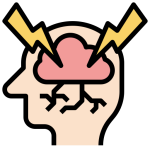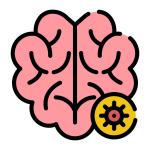Aphasia Following Brain Surgery
Aphasia can occur as a result of a brain surgery. It is especially likely if the brain surgery is in the left hemisphere, where the brain’s language centers are located. Surgeons are able to use brain mapping to attempt to protect the language centers of the brain. Because of this, aphasia as a result of brain surgery is more likely to be short-term as it is not due to damage of the language centers.
Many people experience language impairments immediately following left-hemisphere brain surgery. However, the majority of these impairments have improved by one month following surgery. The exact type of impairment depends on the exact location in the brain the surgery occurred. Other factors impacting the type and extent of aphasia include:
- The body’s response to surgery and anesthesia
- Swelling in the brain
- Whether any of the brain tissue in the language center was impacted
Because aphasia following surgery tends to be short-term and resolves on its own, it is an area that has not been studied as much as other aphasias.
People who have had brain surgery who do experience long-term impairments usually have anomic aphasia. This means their only significant impairment is in word-finding and naming objects. Long-term impairments after brain surgery are typically mild. Most people are able to communicate without a significant difficulty.
Click on the tiles below to learn more about the most common causes of aphasia.
Stroke

Brain Injury

Brain Tumor

Brain Surgery

Brain Infection

Dementia

Developmental Disabilities

